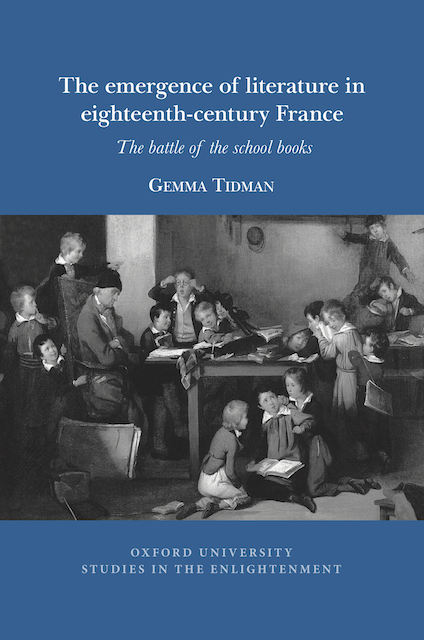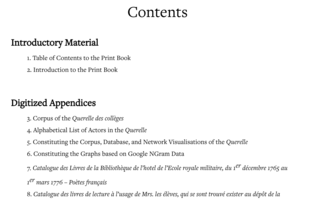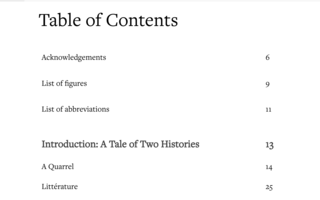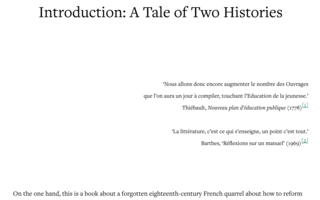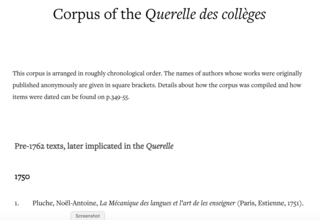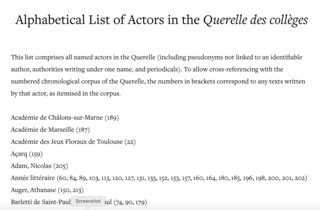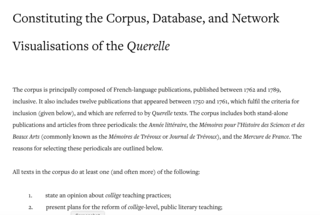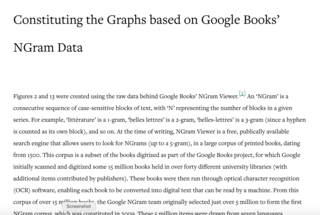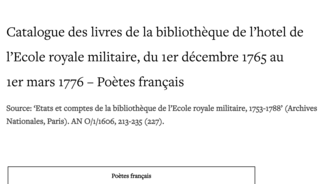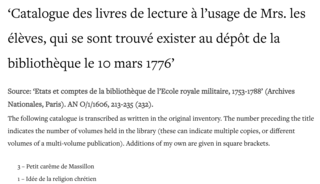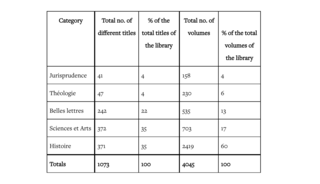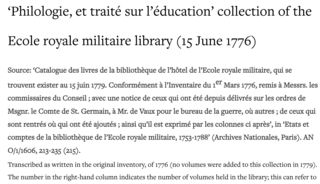The Emergence of Literature in Eighteenth-Century France
The Battle of the School Books
The emergence of literature in eighteenth-century France changes our understanding of when, how and why modern ideas of literature emerged in France. Using a unique blend of literary and digital methods, it argues that it was in the mid eighteenth century, rather than the nineteenth (as many have claimed), that the word ‘littérature’ first came to refer to a canon of classics, an aesthetically pleasing text, and a subject that could be studied in schools. These ideas, the book shows, were propelled by a forgotten quarrel about how to reform literary teaching in the Ancien Régime boys’ collèges.
Stretching back to the sixteenth century and forward to the nineteenth, the book explores the pre-histories of the modern ideas of ‘littérature’ that were propelled by this debate, as well as their afterlives in works by La Harpe and Staël, and in teaching practices in the Imperial lycées. One of the first studies to use social network analysis to map an early modern debate, the book shows that Rousseau was not straightforwardly ‘the’ central actor in eig teenth-century debates about education. And it draws on new archival research to reveal that the Ecole royale militaire (founded by Louis XV in 1751) was one of the first institutions to teach something called ‘la littérature française’.
Ultimately, by intertwining the histories of education, quarrels and intellectual networks, this book tells a new story about how France became the famously literary nation it is today.
Cover image: Detail from Joseph Beaume, 'Le Maître d’école endormi' (1831). Oil on canvas (817x680mm). N°inventaire 1979/00940.001. © Réseau Canopé – Le Musée national de l’Éducation
Texts
Site Contents
- This text has 0 annotations
- This text has 0 highlights
Prefatory Material
- This text has 0 annotations
- This text has 0 highlights
- This text has 1 annotation
- This text has 0 highlights
Corpora and Appendices
- This text has 0 annotations
- This text has 0 highlights
- This text has 0 annotations
- This text has 0 highlights
- This text has 0 annotations
- This text has 0 highlights
- This text has 0 annotations
- This text has 0 highlights
- This text has 0 annotations
- This text has 0 highlights
- This text has 0 annotations
- This text has 0 highlights
Figures 1
- This text has 0 annotations
- This text has 0 highlights
- This text has 0 annotations
- This text has 0 highlights
Resources
Resource Collections
Figures 3: Network Visualisations
CollectionFigures 2: Graphs
CollectionVideos
Collection
Single Resources
Video Video Video Introduction to the Book
Interactive Figure 4. The Querelle as a Dynamic Network of People
Interactive Figure 3. The Querelle as a Dynamic Network of Texts
Image Figure 7: Static network visualisation of the Querelle des collèges, where nodes represent people, and where node size is a function of ties sent and received.
Image Figure 6: Static network visualisation of the Querelle des collèges, where nodes represent people, and where node size is a function of ties sent.
Image Figure 5: Static network visualisation of the Querelle des collèges, where nodes represent texts, and where node size is a function of ties sent and received.
Image Figure 8: Graph showing the annual number of interventions in the Querelle des collèges (1762-1789), including texts published between 1750 and 1761 that were later pulled in to this dispute.
Image Figure 9: Graph showing the nature of references made to Rousseau, shown as a percentage of all of the references he receives.
Image Figure 13: Graph displaying annual frequency of use of the words belles-lettres and littérature (and variants), as a proportion of the total number of pages in the French-language Ngram corpus (2020), from 1650 to 1900.
Metadata
- container titleThe Emergence of Literature in Eighteenth-Century France: The Battle of the School Books
- isbn9781802077629
- publisherLiverpool University Press
- publisher placeLiverpool
- restrictionsAll rights reserved
- rightsWorld English language rights held by Liverpool University Press.
- rights holderLiverpool University Press
- rights territoryWorld
- series titleOxford University Studies in the Enlightenment


